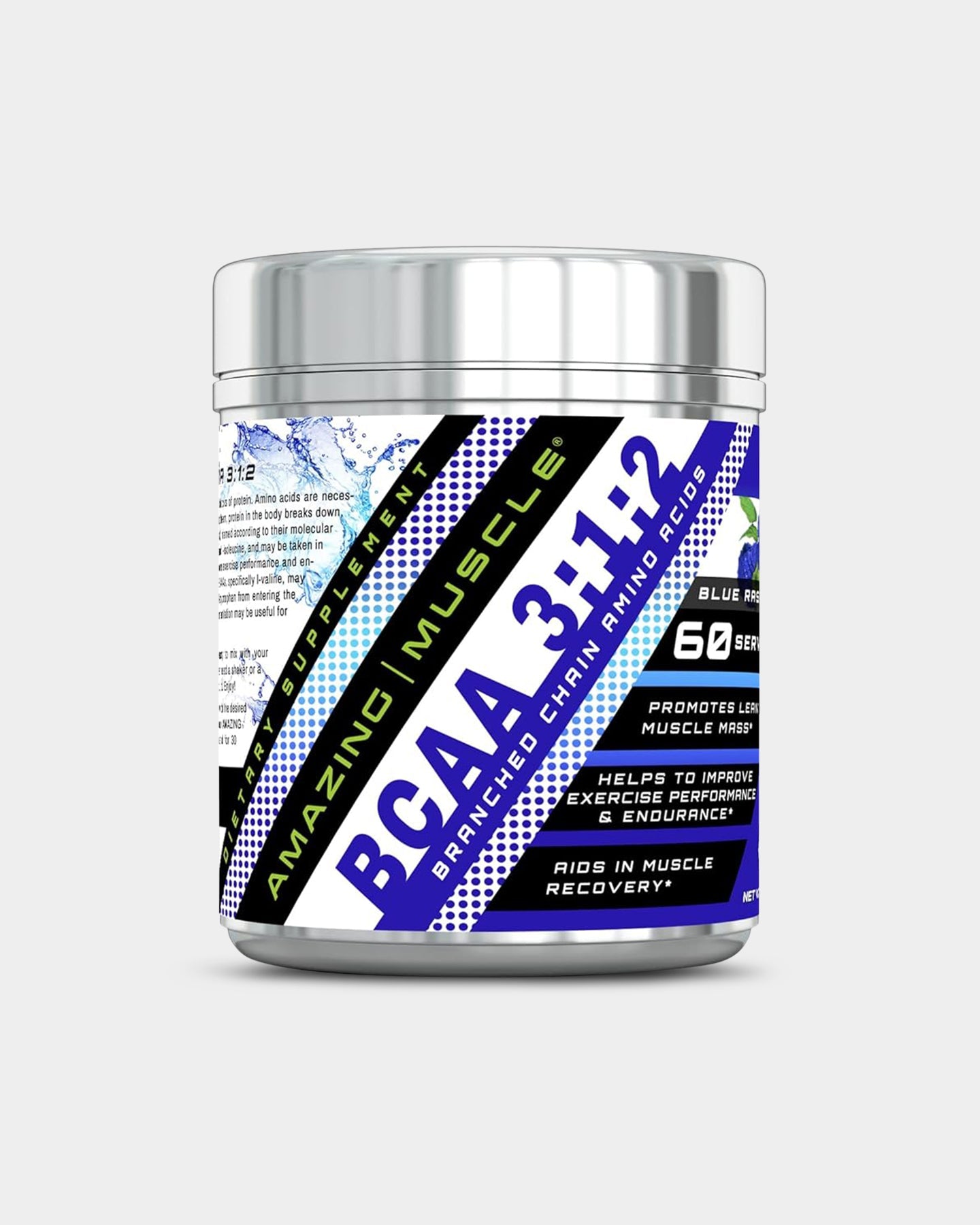Effective Ways to Use BCAA for Improved Workout Performance in 2025
In the ever-evolving world of fitness and sports nutrition, Branched-Chain Amino Acids (BCAAs) have gained immense popularity among athletes and fitness enthusiasts. With a focus on enhancing muscle growth, improving recovery, and boosting overall performance, BCAAs hold a significant place in the realm of supplementations. By understanding their mechanisms and benefits, individuals can optimize their workout routines, achieve their fitness goals, and even enhance their well-being.
This article will explore effective ways to use BCAAs in your training regimen for improved performance in 2025. We will discuss their role in muscle building, energy maintenance, recovery processes, and how they contribute to overall workout efficacy. Additionally, we’ll examine recommended dosages and timing to maximize the benefits of this potent supplement, ensuring a focused approach to muscle mass gain, recovery, and fitness enhancement.
Key takeaways include an understanding of BCAA’s unique benefits, practical implementation of these amino acids combined with fitness strategies, and insights on the best practices for supplementing them in conjunction with a balanced diet.
Essential Guide to BCAA Supplementation for Fitness Enthusiasts
Understanding the fundamentals of BCAA supplementation is vital for maximizing workout performance. BCAAs comprise three essential amino acids: leucine, isoleucine, and valine. These amino acids play significant roles in muscle protein synthesis and recovery post-exercise. By integrating BCAAs into a fitness regimen, individuals can expect various benefits, including muscle preservation, boosted energy levels, and enhanced recovery.
Understanding BCAAs and Their Roles
BCAAs are categorized as essential amino acids, meaning they cannot be synthesized by the body and must be obtained through diet or supplementation. They contribute to muscle recovery by stimulating protein synthesis and reducing muscle fatigue during workouts. Research has shown that BCAA supplementation can decrease muscle soreness and enhance recovery times, making it an invaluable asset to any fitness regimen.
Why Use BCAA for Muscle Building?
One of the foremost reasons individuals utilize BCAAs is their potent effect on muscle growth. The specific amino acid leucine serves as a primary driver in muscle protein synthesis, leading to increased muscle mass. Additionally, by supplementing with BCAAs, athletes can experience decreased muscle breakdown, which promotes muscle retention during calorie deficits commonly associated with dieting for fat loss.
Combining BCAAs with Other Supplements
For optimal performance, consider combining BCAAs with other supplements, such as protein shakes or creatine. This synergy can further enhance muscle gain, improve recovery, and sustain high energy levels during workouts. It’s essential to balance these supplements appropriately to avoid potential digestive discomfort and to align with individual nutritional needs.
Choosing a Quality BCAA Product
When selecting a BCAA supplement, individuals should consider the product’s amino acid ratio, flavor, and bioavailability. Higher bioavailability can lead to better absorption and effectiveness. Additionally, reading customer reviews and comparing different manufacturers helps ensure a quality product that meets individual needs.
Recommended Dosage and Timing for BCAA Intake
The ideal dosage of BCAAs generally ranges from 5 to 20 grams, depending on an individual’s specific goals and training intensity. Timing is also crucial— taking BCAAs before workouts can help elevate energy levels, during workouts can sustain stamina, and after workouts can significantly aid recovery. Finding the right timing based on personal fitness goals can maximize the benefits experienced from supplementation.

Practical Strategies to Maximize BCAA Effectiveness
Integrating effective strategies into your fitness routine while using BCAAs can lead to significant improvements in workout performance and recovery. Here are practical approaches that individuals can apply to ensure optimal results from this supplement.
Creating a Balanced Nutrition Plan
A balanced diet is crucial for maximizing the benefits of BCAA supplementation. Include protein-rich foods such as lean meats, fish, dairy products, legumes, and nuts in your meals. Pairing BCAAs with high-quality proteins ensures that your body receives essential nutrients needed for recovery and muscle growth.
Hydration and BCAA Efficiency
Maintaining proper hydration is essential for nutrient absorption and overall performance. Consuming adequate fluids throughout your training and supplementing with electrolytes can improve the absorption and effectiveness of BCAAs. Additionally, staying hydrated may reduce the risk of muscle cramps and enhance overall endurance.
The Role of Fitness Tracking
Leveraging fitness tracking technology can provide invaluable insights into your workouts, helping you to adjust BCAA intake accordingly. Tracking can reveal patterns in performance related to BCAA usage, allowing for fine-tuning of both training techniques and nutrition supporting your fitness goals.
Incorporating Recovery Techniques
In addition to BCAA supplementation, integrating recovery techniques such as stretching, foam rolling, and rest days into your fitness program can enhance overall recovery. Supporting muscle healing in conjunction with BCAAs can reduce the risk of overtraining and promote lasting performance gains.
Community Engagement and Support
Participating in fitness communities or working with a personal trainer can provide additional support and motivation. Engaging with others can lead to shared tips on BCAA usage tailored to individual experiences, encouraging sustainable habits and goal achievement.

Understanding Potential Side Effects of BCAAs
While BCAAs can be beneficial, it’s crucial to be aware of potential side effects and ensure their safe use as part of your fitness strategy. As with any supplement, individuals should recognize how their body responds and make adjustments accordingly.
Common Side Effects of BCAA Supplementation
Some individuals may experience mild side effects from BCAA supplementation, such as gastrointestinal discomfort or fatigue. Monitoring your body’s response during the initial stages of supplementation is vital to gauge tolerance and effects. Consulting with a healthcare professional before starting any new supplement regimen is highly advisable, especially for those with underlying health issues.
The Importance of Individualized Dosing
Every individual is unique, and finding the optimal dosage of BCAAs depends on factors such as weight, fitness level, and overall health. It’s best to start with a lower dosage to assess how your body reacts, gradually increasing it if necessary. Following a tailored approach can minimize potential side effects while maximizing performance benefits.
Sourcing Quality Products to Avoid Contaminants
Choosing reputable brands is essential in safeguarding against contaminants and ensuring high-quality products free from harmful additives. Look for third-party testing certifications and read through ingredient lists to ensure purity and effectiveness.
Utilizing BCAAs for Fat Loss and Performance Benefits
BCAAs not only aid in muscle recovery and growth but also play a role in body fat loss and athletic performance enhancement. Understanding how these amino acids provide benefits beyond typical recovery can reshape fitness strategies for many enthusiasts.
Supporting Body Fat Loss Efforts
When incorporated into a comprehensive training program, BCAAs can support fat loss by helping to maintain muscle mass during calorie deficits. Retaining muscle while expelling fat leads to a more defined physique, key for many fitness enthusiasts aiming for aesthetic goals. BCAAs can also help manage energy levels during restricted diets, reducing feelings of fatigue.
Boosting Energy Levels During Workouts
By decreasing muscle damage and fatigue levels, BCAAs contribute to higher energy levels throughout workouts. This sustained energy allows for prolonged training sessions, which can yield better results when aiming for improvements in endurance and performance.
Influencing Overall Athletic Performance
Elevated energy levels and enhanced recovery contribute to improved athletic performance. BCAAs can lead to increases in strength, endurance, and speed—essential attributes in competitive sports. By conditioning the body for increased performance, BCAAs provide athletes and fitness enthusiasts an unrivaled edge in their training programs.
Q&A: Common Questions About BCAAs and Their Use
How do BCAAs improve workout performance?
BCAAs enhance workout performance by reducing muscle soreness, decreasing fatigue, and promoting muscle protein synthesis, which all contribute to improved training outcomes.
What is the best time to take BCAAs?
The optimal time to take BCAAs is pre-workout for an energy boost, during workouts for stamina, and post-workout to support recovery and muscle rebuilding.
Are there any side effects of BCAA supplementation?
Although generally safe for healthy individuals, some may experience gastrointestinal discomfort or fatigue. Individualized dosing and quality assurance of products can help mitigate side effects.
Can I consume BCAAs through food sources?
Yes, BCAAs can be sourced from protein-rich foods such as meat, dairy, fish, eggs, and legumes. However, supplementation can provide a more concentrated and convenient intake.
What should I look for when choosing a BCAA supplement?
Focus on the amino acid ratio, flavoring, bioavailability, and customer reviews to choose a high-quality BCAA supplement that fits your individual preferences and needs.
Incorporating BCAAs into your fitness regimen can prove to be a game-changer for aspiring athletes and fitness enthusiasts alike. With the right approach to supplementation, you can achieve enhanced workout performance, effective muscle building, and efficient recovery, paving the way for greater success in your fitness journey.
